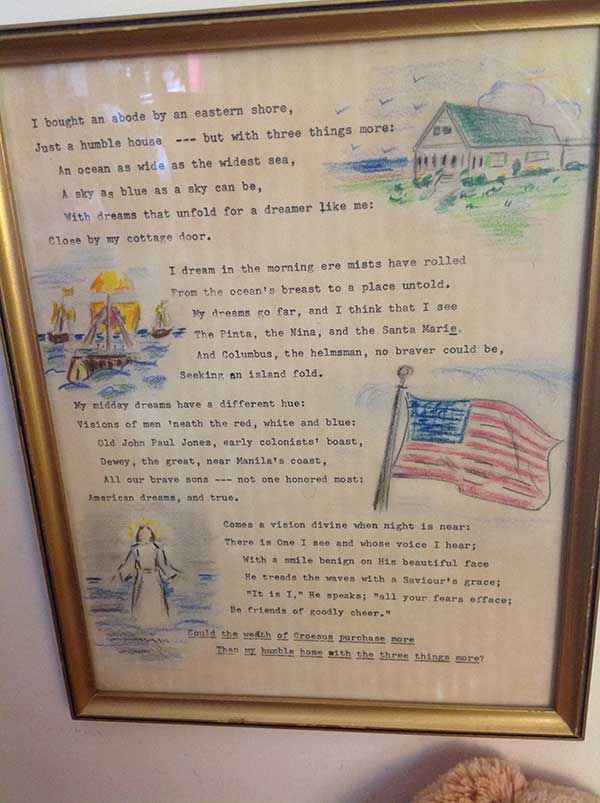As the prince is so also is the kingdom
“The Scriptures teach that there are two opposing princes and two opposing kingdoms: the one is the Prince of peace; the other the prince of strife.”—Menno Simons

Reflections by Jennifer Woodruff Tait
The Scriptures teach that there are two opposing princes and two opposing kingdoms: the one is the Prince of peace; the other the prince of strife. Each of these princes has his particular kingdom and as the prince is so is also the kingdom. The Prince of peace is Christ Jesus; His kingdom is the kingdom of peace, which is His church; His messengers are the messengers of peace; His Word is the word of peace; His body is the body of peace; His children are the seed of peace.—Menno Simons, “Reply to False Accusations”
My great-grandfather on my grandfather’s side was a judge in Collingswood, New Jersey. I never met him, but family lore tells me that he was a kind and just man who served his chosen career well, and liked writing poetry on the side. He especially liked to write patriotic poetry: I have a framed example on my wall that used to hang in my mom’s bedroom when she was a teenager. (See below).
My great-grandmother, his wife, was descended from people who had fought in the American Revolution (and, later, became friends with Abraham Lincoln: family lore tells that Lincoln liked to hide in my distant relative Newton Bateman’s room from unwanted guests.)

A patriotic poem by Francis A. Stanger, Jr.
My great-grandparents on my grandmother’s side were Swiss-German immigrants from the Canton of Berne who came to the United States in the late 19th century. In the U.S. they joined the Christian and Missionary Alliance church, but up until then they had been Mennonite. Among the family names on that side of the family is Geiger, a name that threads through Mennonite history (a “Peter Giger,” as it was spelled then, was involved in opposing the schism that created the Amish.)
Growing up, I heard the religious stories and views more of my grandfather’s people than of my grandmother’s: an honorable and just patriotism rather than an honorable and just resistance to any earthly allegiances. Only recently have I become more aware of, and captivated by, my family’s original Mennonite heritage and pacifist commitments. I’ve been reading more Menno Simons as a result, and the quote above really struck me with its call to all Christians to be messengers of peace.
Christian History recently released an issue called Faith in the Foxholes (on Christian faith in the World Wars). It told many moving and challenging stories: of fallen heroes and conscientious objectors, of people on the home front who supported wars and people who opposed them. Its picture of the complexity of human choices in wartime surprised even the editorial staff at times: working on it sometimes brought us to tears.
Looking back over my own history, I want to honor those who died because they thought it was right and just to defend their country, as my grandfather’s people would have done. But I also want to honor those who (in many cases) died or suffered persecution because they thought it was right and just to swear allegiance only to King Jesus, as my grandmother’s people would have done. In the same tract, Menno goes on to say: “O beloved reader, our weapons are not swords and spears, but patience, silence, and hope, and the Word of God.” May it be so, and may those of us who bear the name of King Jesus help to bring peace to the earth, so that no more will have to die in vain.
Jennifer Woodruff Tait is editor of Christian History magazine
(Join us each Thursday for a fresh look at a quote from the Reformation era! Sign up via our e-newsletter (in the box at the right) or through our RSS feed (above), or follow us on Facebook through October as we celebrate 500 years of Reformation.)
In addition to Faith in the Foxholes, Christian History has war issues on Christianity in the Civil War, the American Revolution and the Crusades.



